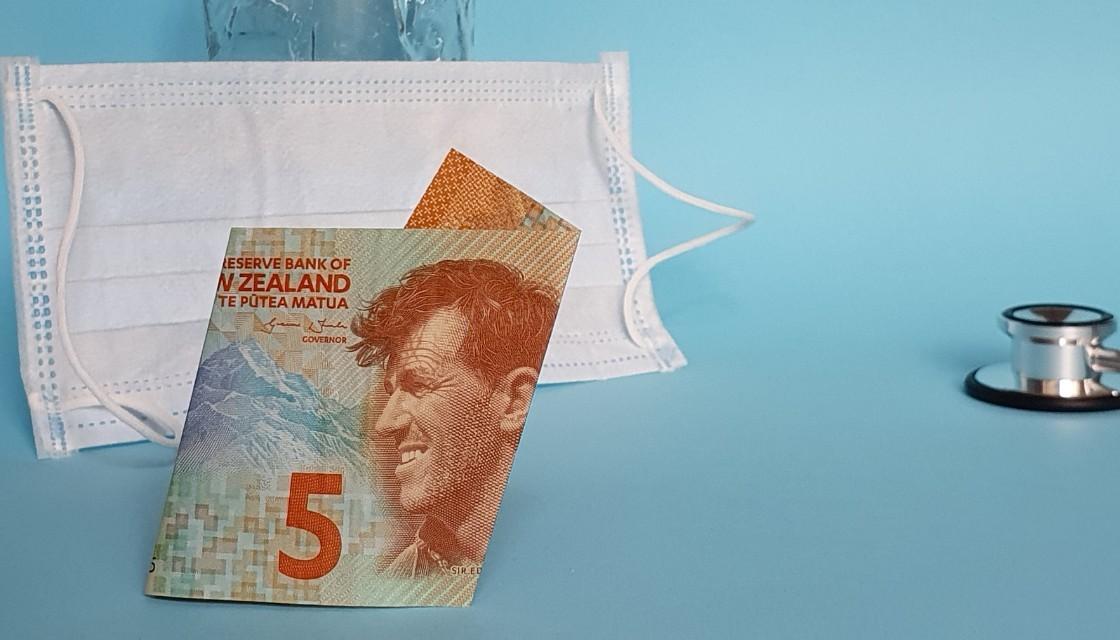
Retailers are allowed to accept cash payments under COVID-19 alert level 2, but experts say its use is dwindling.
The pandemic has accelerated the use of contactless payments, as handling cash increases the risk of the virus being spread.
Greg Harford, chief executive at Retail NZ, confirmed that large numbers of retailers have switched to contactless payments and some aren't accepting cash.
"Cash has fallen somewhat out of favour given the COVID-19 crisis, with many customers preferring to pay using contactless cards," Harford said.
However, cash payments are "unlikely to disappear entirely", as some people prefer to use it for smaller purchases, such as at dairies, he added.
The Reserve Bank confirmed that during alert level 2, retailers aren't legally required to accept cash. However, they should bear in mind that declining it may disadvantage those who rely on its use, such as elderly, poor and disabled people.
"Some shoppers and retailers are preferring to avoid cash transactions at the moment to speed up transactions and reduce physical contact and face time," the Reserve Bank website states.
Cash can be used safely if hygiene measures, such as washing hands and cleaning cash surfaces are adopted.
On Wednesday, Bunnings, Farmers and Cotton On confirmed that cash payments are still accepted if shoppers prefer it.
Bunnings New Zealand director Jacqui Coombes said that stores have put measures in place to handle cash safely.
"Our team members can use disposable gloves and are encouraged to sanitise or wash their hands after cash transactions with some stores using a money tray to further limit contact," Coombes said.
"Cash registers, eftpos machines and surrounding benches are cleaned regularly, particularly as our team changes over for breaks."
A customer services representative at Farmers St Lukes said that cash was accepted but not all cash registers were equipped. She suggested that cash-paying customers flag it with the department to allow their payment to be processed.
Worldpay, a provider of payment processing and technology, forecasts that by 2023, cash will be almost redundant in New Zealand, making up less than one in five in-store transactions.
Phil Pomford, general manager of global eCommerce, confirmed that COVID-19 had accelerated the shift away from cash. Additionally, for online purchases, use of debit cards is projected to fall from 16 percent in 2019 to 9 percent in 2023.
"During these challenging times, consumers are looking for online convenience and security.
"Consumers will gravitate towards payment products that offer the most perceived value, whether that's convenience, simplicity, greater security, loyalty rewards or flexible credit options," Pomford said.
Data indicates that digital wallets are the fastest-growing payment method. This year, they account for around 21 percent of all eCommerce transactions (around 3 percent of in-store transactions). They are set to form 31 percent of the eCommerce market by 2023.
"The rise in use of digital wallets is predominantly due to the friction-free experience: using biometrics or a password, [customers can] complete their purchase in a matter of seconds," Pomford added.
The use of cash is declining, accelerated by the COVID-19 pandemic. Although retailers can choose whether to accept cash under alert level 2, shoppers are encouraged to pay using contactless methods, such as PayWave, PayPass or Tap-and-Go.


